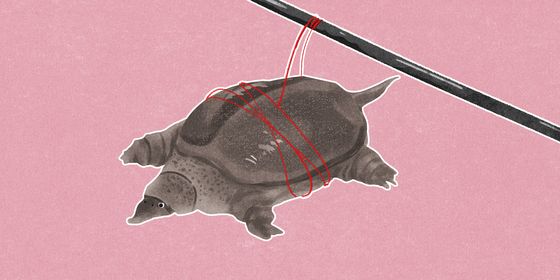A dog-noise dispute ending in a fatal stabbing spree has prompted fresh calls for a national law on pet ownership and basic animal rights
Dogs have always held a special place in Chinese hearts. Some even claim the history of dog domestication can be traced to south of the Yangtze.
Still, this may not seem apparent nowadays, with all the viral stories involving cynophobic authorities confiscating pets, rural dog meat festivals, and predatory dog thieves, along with countless tales of everyday cruelty too unpleasant to link to.
One frequent flashpoint is over correct “dog etiquette” between neighbors in China’s crowded metropolises. In one notorious instance in January, a woman who’d found a lost Corgi, decided to turn dog-napper, and sent the owner ransom notes—even threatening to eat the animal—before panicking and tossing the poor dog to its death, after an online hate campaign that also resulted in numerous arrests.
If nothing else, the story illustrates the sensitivities of keeping pets in close quarters with those who don’t understand or appreciate the habit. But the Corgi’s gruesome fate, and the furious fallout it precipitated, also highlights a glaring lack of regulations concerning pet ownership and basic animal rights.
The issue was back in the news this week, following a shocking series of events in Ningbo that ended with three people dead.
According to police, the problem had been brewing for months, due to an annoying dog. The Chen family’s canine had been disturbing at least one neighbor, surnamed Wang, with its incessant barking. Complaints over the animal’s noise had come to naught, as the Chens apparently refused to muzzle the mutt at night. When the animal started up again last Wednesday afternoon, a sleep-deprived Wang went to complain, then for some reason returned to his apartment to fetch a knife. The result? Three dead neighbous, including Chen’s wife and daughter, and Chen’s mother in intensive care (the fate of the dog is unknown).
Despite the deaths of innocent members of the Chen family, opinions on Weibo skewed mostly against the dog owners. “It is your right to raise a dog, but you are also obligated to…fulfill your obligations as the dog’s owner,” was one of the most popular comments. “All parties are at fault,” concluded another. “A dog’s excessive barking can really drive you crazy,” a sympathetic user pointed out. Wang “probably didn’t get enough sleep and had a lapse in judgment.”
Wang had not tried calling the police previously to resolve the matter, the authorities said (he also passed a blood-alcohol test and had no criminal history). But even if he had spoken to them, it’s likely he would have hit a dead end.
There are no clear-cut laws to help resolve matters involving pet ownership. The police could have turned to the Public Order Management and Punishment Law to order the owner to keep his animal quiet, perhaps between certain hours, but that’s certainly beyond the scope of the law’s intent; likewise, charging the kind of obsessive psychopath who sneaks round at night, poisoning their neighbor’s cats, with “intentional property damage” (applicable only if the animal is valued at over 5,000 RMB) offers little real recompense to those who have lost a four-legged family member.
“The old management system obviously can’t keep up with new circumstances,” declares academic and animal rights activist Jiang Jingsong. Pet dogs alone are more numerous than ever before—between one and two million just in Beijing, if one includes unregistered hounds—along with countless more single, elderly, childless, or plain lonely people who’d be delighted with some animal companionship.
Today, there are over 200 rights groups in China promoting animal welfare and recognition of rights—but still no national law.
In 2010, PETA heralded that “change is on the way for animals” with China’s “groundbreaking animal protection law.” The law, which circulated at the National People’s Congress (NPC), addressed the care, breeding, and transportation of animals, outlawed their mistreatment and abandonment, and covered the rights of non-pet owners as well. Activists were excited to see a concrete set of rules finally getting laid out, yet the law somehow never made it vote—and there’s been no further update since.
Yet many in the public see it as a priority. A proposal to outlaw cruelty to animals topped the polls in an online vote by the Communist Youth League after last year’s NPC. For this Year of the Dog, it would have been fitting to see it enacted.












